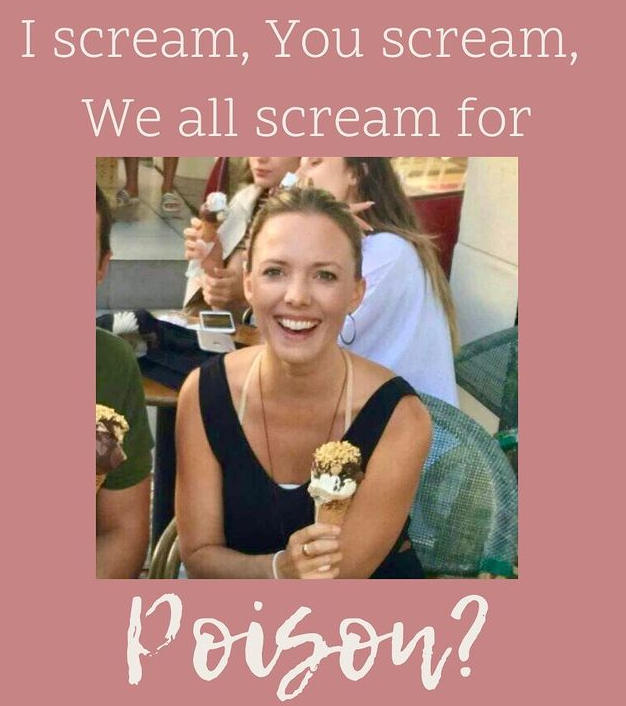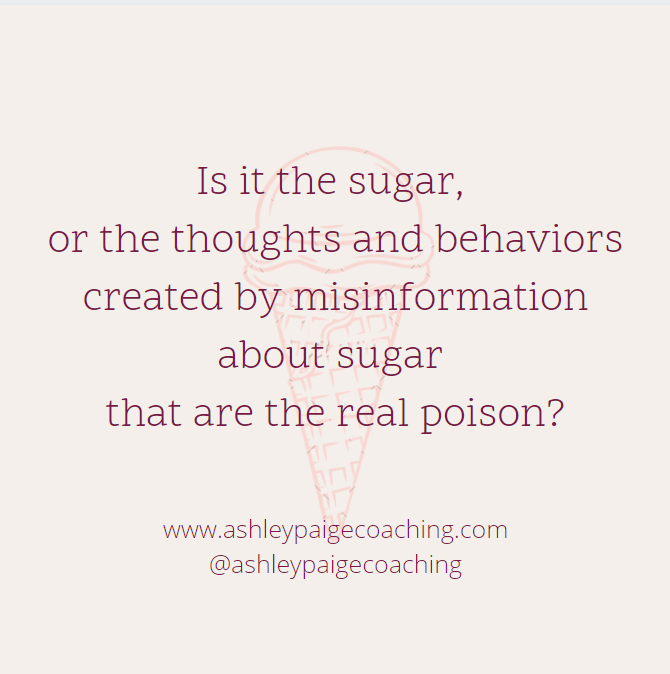
If your dieting career dates back to the ‘70s I can probably guess you avoid carbs. However, if you started between the ’80s and ‘90s you most likely count calories and reduce fat as much as possible. If you’re struggling with a disordered relationship with food today, I can bet you think sugar is poison. At one point I actually convinced myself that I would never in my life eat white sugar again. After all, sugar is addictive and causes diabetes and cancer, right? Nope.
Diet culture names not being able to trust yourself around sugar an ‘addiction’. However, addiction is the abuse of a substance not essential to your survival. That definition in itself is an argument against calling sugar addictive (it’s essential to our brain function), but let’s look further. The ‘sugar is as addictive as cocaine’ narrative has been popularized thanks to a study done on rats – you are not a rat – that fails to mention two very important details:
-The rats were given limited access to sugar. Only when they were deprived did they eat in a way that might look addictive. *In human studies on deprivation, non-dieters (intuitive eaters) don’t show the same addictive-like reaction.
-The reward centers of the brain that light up in response to sugar and cocaine also respond the same way to things like music, orgasms, and playing with puppies. But we don’t use ‘addiction’ to describe these things, do we?
This is just one example of flawed nutrition science the general public accepts as fact. The media often sensationalizes studies’ findings in order to attract attention. If you want to challenge your own nutrition beliefs, I highly recommend reading Dr. Joshua Wolrich’s book Food Isn’t Medicine.
Back to sugar.
The Restriction Pendulum, as Christy Harrison calls it, is the natural response to swing from believing we can’t be trusted and must control ourselves around sugar (or any food), to the restriction backfiring and leading to a binge. To the body, restriction (even if it’s only mental restriction) feels like famine and will be countered by seeking out highly palatable foods that provide the quickest source of energy. Does it make sense now why chocolate, pizza, chips, cookies, and ice cream tend to have so much power over us?
The aftereffect of binging on sugar is for us to feel like something’s wrong with us, like we’re broken. But would we shame ourselves the same way if we gasped for air in a frantic attempt to recover from limited access to oxygen? Of course not. In such a scenario, it’s logical to accept that the body is doing what it’s supposed do to protect us, so why can’t we accept the same response to food restriction?
Because we make the act of feeding ourselves a moral obligation. It’s all about self-discipline, eating ‘clean’, and being ‘good’. Diet culture demonizes highly palatable foods and encourages us to subscribe to whatever lifestyle change, cleanse, or detox is trending. Sadly, people in larger bodies are particularly stigmatized for indulging in these so-called ‘bad’ foods under the guise of concern for their health. The misunderstanding here is that disordered eating, chronic dieting, and weight discrimination (all frequently experienced by people in larger bodies) are all independent factors that result in adverse health effects which mistakenly get attributed to food. How fucked up is that?
If you wholeheartedly believe you struggle with an addiction to sugar, consider looking beyond the behavior to understand why you’re turning to sugar as a distraction or support. Any substance can be abused for the purpose of coping with unmet needs. But if sugar were truly addictive, every human would become an addict. If it weren’t for diet culture, we’d be able to feel peaceful around sugar because it would be morally equivalent to vegetables. So in the end, is it the sugar, or the thoughts and behaviors created by misinformation about sugar that are the real poison?
